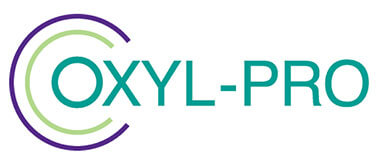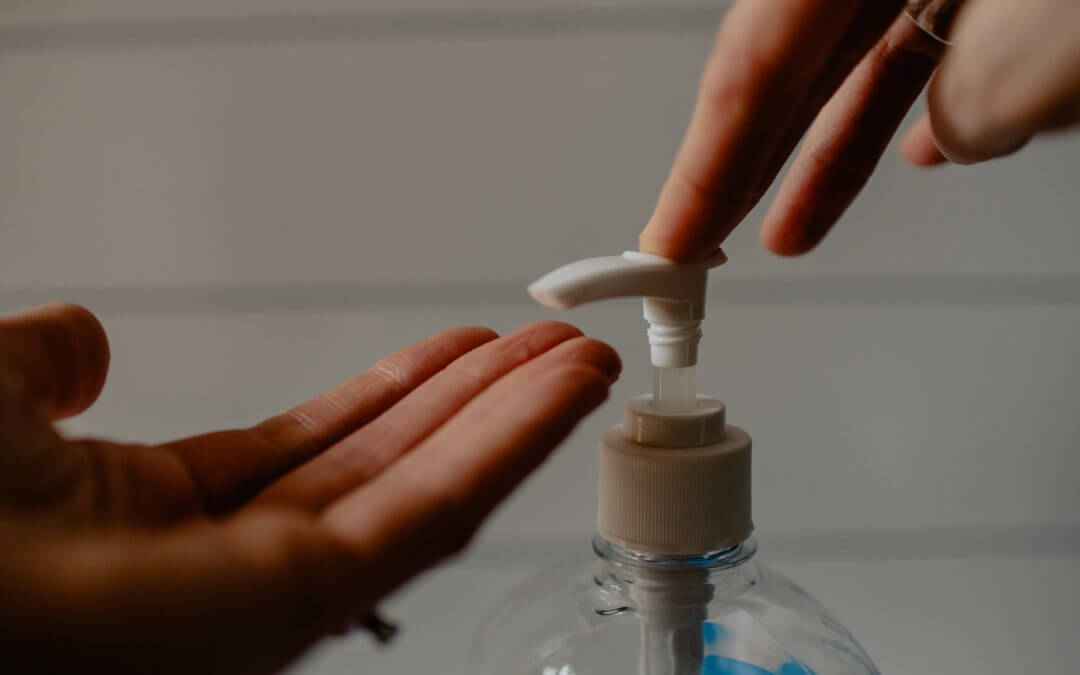Hydrogen peroxide has uses as both a disinfectant and a biocide, and it is an effective hand and surface disinfectant.
But it is also a powerful chemical compound and has a range of applications as a bleaching agent. So what makes it safe for use on skin as a hydrogen peroxide sanitiser?
What is Hydrogen Peroxide?
Hydrogen peroxide is a chemical compound which contains two hydrogen atoms and two oxygen atoms. When you break the peroxide bond between the two oxygen atoms, the compound forms two H-O radicals. These react with other substances, while a chain reaction takes place, forming two new radicals.
But because hydrogen peroxide is highly reactive, it is also extremely versatile as a compound.
It has various industrial and commercial uses, as well as being highly effective as a disinfectant in water.
How is Hydrogen Peroxide Commonly Used?
Hydrogen peroxide is used in cleaning and in bleaches. Many personal care products such as hair dyes and bleaches contain hydrogen peroxide.
You also find it in low concentrations in mouthwashes and toothpastes.
The disinfectant qualities of hydrogen peroxide mean that it has common uses in the healthcare industry and in cleaning products – it is used in the manufacture of sodium perborate and sodium percarbonate, for example.
It also has a range of industrial applications.
Which Industries Use Hydrogen Peroxide?
Hydrogen peroxide is highly adaptable, and you will find it in use across a broad range of industries.
In chemical synthesis, hydrogen peroxide’s low molecular weight makes it a more effective oxidising agent than potassium permanganate or dichromate. You can use it in various organic solvents, as well as water.
The electronics industry uses hydrogen peroxide as an oxidising and cleaning agent when manufacturing semiconductors, and in etching printed circuit boards.
In gold and uranium mining, hydrogen peroxide acts as both an oxygen source and an oxidising agent in production processes, preparing concentrates and leaching ore.
Hydrogen peroxide is a bleaching agent in the pulp and paper industry, and in textiles for both synthetic and natural fibre treatment.
As a disinfectant, hydrogen peroxide is used in:
- Agriculture and horticulture
- Livestock treatment
- Food and drink production
- Leisure and sports facilities
- Shipping
and in water treatment and as a hand and surface disinfectant.
What are the Benefits?
Because it reacts so quickly in water, Hydrogen peroxide is extremely effective as a high-level disinfectant.
It breaks down into oxygen and water leaving no harmful by-products.
The free radicals in hydrogen peroxide act to both disinfect and oxidise, eliminating proteins in water.
As a disinfectant, hydrogen peroxide leaves no chemical residues. It is also biodegradable.
Is Hydrogen Peroxide Safe for the Skin?
Intact skin does not easily absorb hydrogen peroxide, but in its household cleaning form it may cause mild skin irritation (at about 3% to 5% concentration).
In bleaching concentrations of 10%, hydrogen peroxide can be corrosive and strongly irritating.
But, as a mild antiseptic solution, you can apply hydrogen peroxide to skin to prevent infection from minor cuts and scrapes.
And, as a disinfectant for hand and surface disinfection, hydrogen peroxide is safe for skin.
Hydrogen Peroxide as a Hand and Surface Disinfectant
In its stabilised form, hydrogen peroxide is a highly effective hand and surface disinfectant.
By stabilising it, this ensures it will be effective for longer periods of time and will be effective against the bacterial enzyme catalase.
Normally, this enzyme acts a line of defence for bacteria, against disinfectants. But the stabilisation agent in hydrogen peroxide will react with the catalase, destroying it, leaving the chemical compound free to act against bacteria.
A common way of stabilising hydrogen peroxide has been with silver or other heavy metals.
Oxyl-Pro, a Next Generation Disinfectant
Oxyl-Pro is aseptic hydrogen peroxide-based, but instead of using silver for stabilisation, it relies on a unique encapsulation process, using only food-safe ingredients to stabilise its chemical formulation.
The result is a versatile, multi-purpose disinfectant, which is effective as a water treatment and also as a hand and surface sanitiser.
The encapsulated molecules in Oxyl-Pro only activate when in contact with specific biological markers, making this disinfectant highly focused when targeting microorganisms.
As a hydrogen peroxide hand sanitiser, it has a proven efficacy against Coronavirus, and is EN1500 and EN14476 tested.
For more information about Oxyl-Pro, please complete our contact form, call us on +44 1606 851 782, or email enquiries@oxylpro.com

